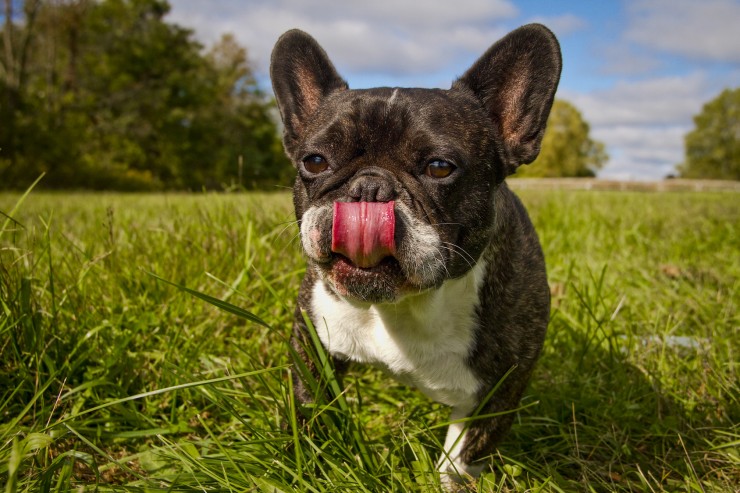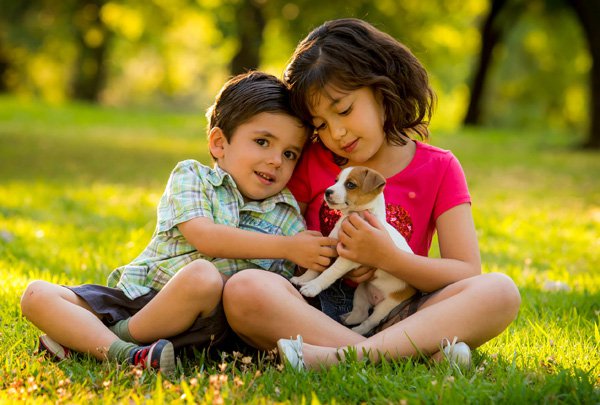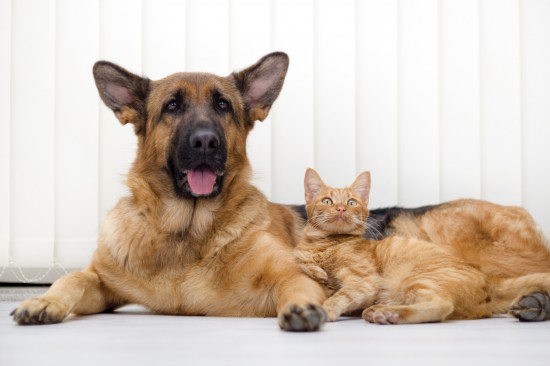

It's all too easy to fall in love with a dog and it's just as easy to forget how much they will rely on you for direction because without this, you could end up with an unruly character. It doesn't take much for dogs to develop behavioural issues and for things to get out of hand. The thing to bear in mind is that it's much easier to spend a little time every day training your new dog than it is to address unwanted behavioural issues.
People tend to blame dogs for their bad behaviour but this is seldom true. All too often it’s owners who give their pets all the wrong signals and as such problems develop which can make life miserable for everyone. Dogs can't differentiate whether you are doing something intentionally or not, they simply react to you and this is something that many people forget. It's important to understand this part of a dog's psyche because it will have a direct bearing on how you handle and train your new dog so they turn out to be well-balanced and happy characters.
Dogs like to know their place in a pack which means you have to establish yourself as a good pack leader whether you decide to share your home with a cute little Miniature Poodle or a magnificent Great Dane. Problems tend to start when owners treat their little “darlings” as their babies and let them get away with things. This includes barking, nipping and basically being very naughty which is allowed to go on until a dog gets totally unmanageable. In short, little dogs are often allowed to behave badly and as a result they become dominant characters – even if they are tiny.
It's important to start as you mean to go on and be consistent. If you don't want your dog to jump on the furniture, every time they do you have to make them get down. You don't have to be harsh but you do need to be firm and always fair with your pet so that eventually they get the message and no longer attempt to get on your expensive sofa. Some dogs are faster learners than others so you have to take this into account. You have to be patient, but unrelenting in your approach so that your dog understands you are a fair and good pack leader.
It would be fair to say that most dog owners love their pets, which is only natural. However, this loves needs to be channelled correctly or it might lead to all sorts of issues. Dogs are pack animals, they have instincts which they follow closely whether it's to hunt, track something down with their noses or herd other animals. They should not be perceived as “people” covered in lovely fur. If your dog is scared of something and you tell them “it's okay” as you would a child, your pet would understand this to mean it's okay to be scared! The same applies to when dogs are being possessive or aggressive and you tell them “it's okay” in an attempt to calm them down.
When your dog gets too excited about anything or they are anxious, aggressive or fearful it shows they are in an unstable state of mind and therefore you should not show them any affection. Your dog will associate the behaviours with affection which in short means they think that it's okay to act this way and the reason is because you told them it was. With dogs, you have to learn to speak their language so they understand what's expected of them.
Dogs use body language to communicate with each other it's an important part of the way they let each other know certain things about themselves. Dogs also watch people and read their body language too. In short, if you're not very confident about walking your dog, the chances are your shoulders are hunched over which your dog will pick up on and this will result in them becoming more dominant and start leading the way because they perceive themselves as the leader of the pack
A dog will send you signals using their body language which you need to learn to recognise. It could be as simple as walking to the front door and then looking back at you which is their way of letting you know they need to go out to do their business. However, as the leader of the pack when you leave the house or come back in, you should always be the first to cross the threshold.
It's important to respect a dog's natural needs which includes going out for several walks on a daily basis, playing interactive and fun games which helps them burn off any excess energy as well as keep them in good shape. Dogs need to be mentally stimulated because they enjoy working things out and this includes how to find a treat in a doggy puzzle box. It a dog is not kept mentally stimulated they are prone to find ways to keep themselves entertained which is typically an unwanted and often obsessive behaviour. All dogs need to be loved and shown lots of affection, but exercise and mental stimulation have to come first!
Dogs need to well socialised from a young age and this includes being introduced to both people and other animals. However, they also need to continue their socialisation right throughout their lives and this happens when they are out on a walk or when people come to visit you in your home. A well-balanced dog likes to meet new people and other dogs/animals because it means they get to sniff new smells which for a dog represents more than most people realise.
If you are a good pack leader and you set the right parameters for you canine companion, they will understand what you expect from them. You will both benefit from it and the result is a happy, well-behaved and loving furry companion and one that understands the “rules”. A little training every day goes a long way when you share your home with a dog. However, dogs left to their own devices have a tendency to develop behavioural problems which can take a very long time to correct. Lots of physical exercise, mental stimulation and affection goes a long way when you share a home with a canine companion, but it has to be in that order.
 Recognising When A Dog May Be Suffering
Recognising When
Recognising When A Dog May Be Suffering
Recognising When
 Flea Control Strategies
Flea Control Strategies
 Bearded Dragon Health And Diseases
Bearded Dragon He
Bearded Dragon Health And Diseases
Bearded Dragon He
 Rabbit Hutches – a Home for your Bunny Pet to Call their Own
Rabbit Hutches – a Home for your Bunny Pet to Call their O
Rabbit Hutches – a Home for your Bunny Pet to Call their Own
Rabbit Hutches – a Home for your Bunny Pet to Call their O
 8 Tips Concerning The Nutritional Management Of Renal Dysfunction In Dogs & Cats
8 Tips Concerning
8 Tips Concerning The Nutritional Management Of Renal Dysfunction In Dogs & Cats
8 Tips Concerning
Copyright © 2005-2016 Pet Information All Rights Reserved
Contact us: www162date@outlook.com